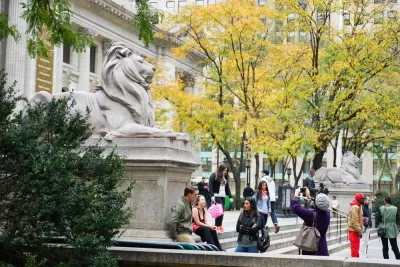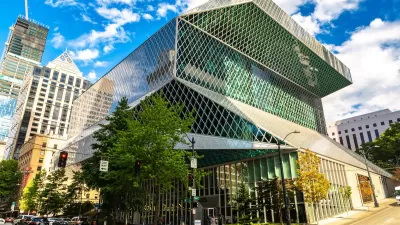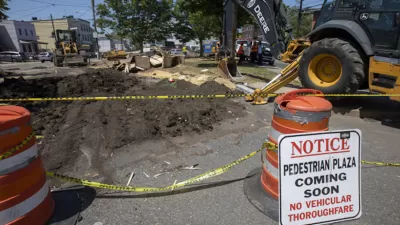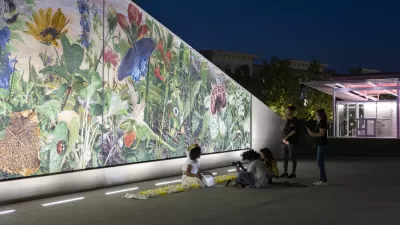Much of communal life now takes place virtually in digital spaces that feel public but are not. The internet needs to be more like our public parks, libraries, and public squares.

With public health orders to physically distance and not gather in groups, many of us have turned to digital spaces to communicate, gather, and share. This thoughtful piece by Eli Pariser makes the case that the internet is broken and that we need to remake our digital spaces to be more like the public parks, libraries, and public squares that we cherish.
As strange as it may sound, Pariser explains how lessons from parks can be applied to the creation of virtual public spaces. Pariser draws inspiration from a local park and the poet Walt Whitman, saying "Whitman saw public spaces as critical elements of the new American democracy. They were spaces to celebrate individuality and build collective identity. Public parks, he argued, could help weave a greater, more egalitarian 'we.'"
While Facebook and Twitter may seem public, they are privately owned and are actually more like "walled gardens" where the corporate owner has complete control. Also, these platforms seem to have served to divide rather than connect us or engage us in fruitful discourse, especially during these trying times.
The article goes on to identify three challenges that need to be addressed to build thriving digital public spaces:
- Money: Philanthropy is one source; another idea is to tax targeted advertising and use those funds to shore up democratic functions that the big tech platforms have eroded, such as local journalism.
- Talent and Research Problem: A diverse and representative generation of builders, including both people inside and outside of technology-related fields, is needed to build something seamless, intuitive, and irresistible that allows millions of people to interact
- Public Imagination: Building digital public spaces that mirror the physical public spaces that we love is a big job and requires more than just a technological solution.
Creativity is needed to tackle a problem of this urgency and consequence. Pariser concludes by reminding us that we have tackled problems of this magnitude before. The public park is only one of many ideas implemented to enact America’s egalitarian values. Another example is public libraries which opened at the turn of the 20th century to help foster literacy nationwide.
FULL STORY: To Mend a Broken Internet, Create Online Parks

Planetizen Federal Action Tracker
A weekly monitor of how Trump’s orders and actions are impacting planners and planning in America.

Maui's Vacation Rental Debate Turns Ugly
Verbal attacks, misinformation campaigns and fistfights plague a high-stakes debate to convert thousands of vacation rentals into long-term housing.

San Francisco Suspends Traffic Calming Amidst Record Deaths
Citing “a challenging fiscal landscape,” the city will cease the program on the heels of 42 traffic deaths, including 24 pedestrians.

Defunct Pittsburgh Power Plant to Become Residential Tower
A decommissioned steam heat plant will be redeveloped into almost 100 affordable housing units.

Trump Prompts Restructuring of Transportation Research Board in “Unprecedented Overreach”
The TRB has eliminated more than half of its committees including those focused on climate, equity, and cities.

Amtrak Rolls Out New Orleans to Alabama “Mardi Gras” Train
The new service will operate morning and evening departures between Mobile and New Orleans.
Urban Design for Planners 1: Software Tools
This six-course series explores essential urban design concepts using open source software and equips planners with the tools they need to participate fully in the urban design process.
Planning for Universal Design
Learn the tools for implementing Universal Design in planning regulations.
Heyer Gruel & Associates PA
JM Goldson LLC
Custer County Colorado
City of Camden Redevelopment Agency
City of Astoria
Transportation Research & Education Center (TREC) at Portland State University
Jefferson Parish Government
Camden Redevelopment Agency
City of Claremont





























